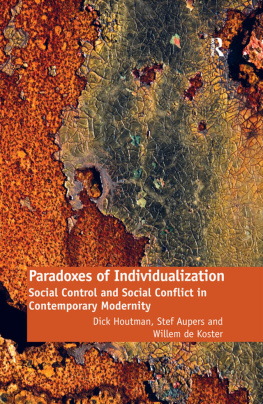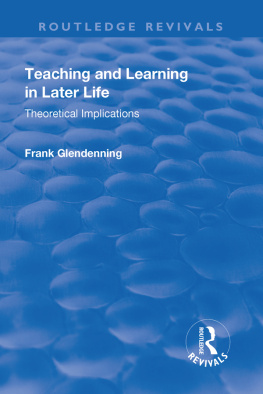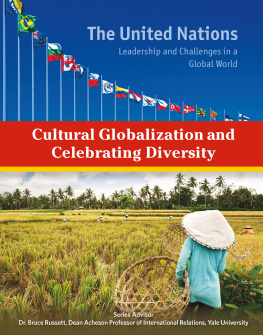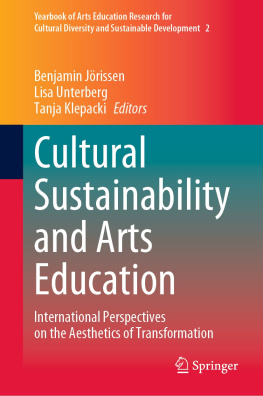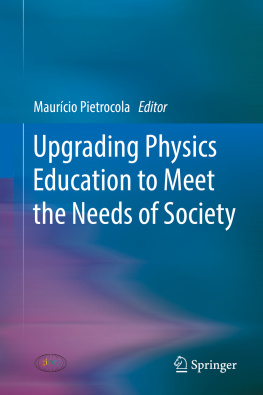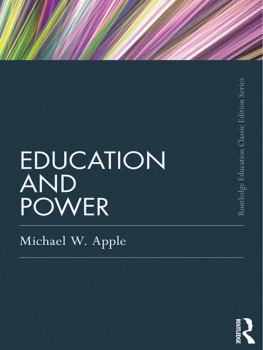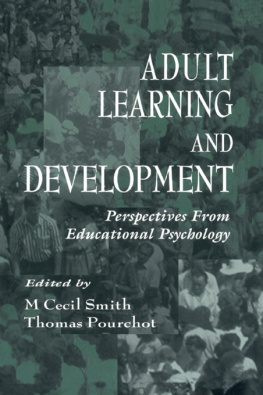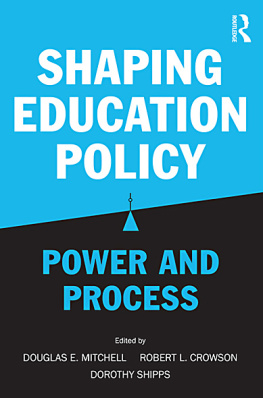First published 2003 by Ashgate Publishing
Reissued 2018 by Routledge
2 Park Square, Milton Park, Abingdon, Oxon OX14 4RN
711 Third Avenue, New York, NY 10017, USA
Routledge is an imprint of the Taylor & Francis Group, an informa business
Copyright Andrew Stables 2003
Andrew Stables has asserted his right under the Copyright, Designs and Patents Act, 1988, to be identified as the author of this work.
All rights reserved. No part of this book may be reprinted or reproduced or utilised in any form or by any electronic, mechanical, or other means, now known or hereafter invented, including photocopying and recording, or in any information storage or retrieval system, without permission in writing from the publishers.
Notice:
Product or corporate names may be trademarks or registered trademarks, and are used only for identification and explanation without intent to infringe.
Publishers Note
The publisher has gone to great lengths to ensure the quality of this reprint but points out that some imperfections in the original copies may be apparent.
Disclaimer
The publisher has made every effort to trace copyright holders and welcomes correspondence from those they have been unable to contact.
A Library of Congress record exists under LC control number: 2002028105
ISBN 13: 978-1-138-70921-8 (hbk)
ISBN 13: 978-1-315-19955-9 (ebk)
The closing years of the twentieth century brought increasing political and media attention to the effectiveness of education, yet increasingly little, it sometimes seemed, to fundamental issues concerning it. There were exceptions, of course. For example, Nigel Blake, Paul Smeyers, Richard Smith and Paul Standish's Thinking Again: education after postmodernism (1998) sought both to explain the prevailing emphasis on 'performativity', and to reassure us that prevailing cultural conditions can act as a stimulus to new thinking as well as a graveyard for the old (a point made by the postmodern philosopher, Jean-Francois Lyotard, on whose work the authors drew).
In the same spirit, this book encourages a reappraisal. It has little directly to say about the effectiveness of existing procedures or policies, or how to improve them. Indeed, it is little concerned with the kind of evidence that is generally expected to inform policy and practice. Rather, it invites a reconsideration of some of the assumptions that have underpinned recent thinking about education in recent times: assumptions about children, about cultural values, and about what teaching can, and cannot, feasibly achieve. On such assumptions depend the interpretation of all evidence.
The following work is intended as a contribution to educational theory and the philosophy of education, although it does not subscribe to the sometimes fashionable view of educational theory as the province of self-reflecting practitioners, and it runs the danger of sacrificing some analytical rigour in favour of speculation over some (relatively) 'big ideas'. The approach is thus very 'broad brush', and this brings both rewards and challenges. Unlike many books about education, the sociocultural context is here seen as all important. Educational institutions are not seen as drivers of social change so much as in a dialogical relationship with the rest of society (however defined) and, as part of that dialogue, educators should be engaged in spirited debate and not merely in implementation. While practices of schooling, for example, clearly impact on the emerging social and personal identities of young people, as well as affecting their chances of gaining potentially important qualifications, schools remain conservative rather than radical forces, with social change largely driven from elsewhere. Schools did not drive the development of the information society of the late 1990s; nor did higher education, though research played its part. However, to forego discussion of such issues for easy closure, and to see educators as mere implementers of change, is to remove such influence as education can have, while to study education without attention to prevailing social and cultural conditions is to retreat into a kind of solipsism.
On the other hand, this attempt at reconsidering educational assumptions runs many risks. Many literatures are touched on in the following chapters, yet a criticism might be that few are explored in any depth, and a little learning can, indeed, be a dangerous thing. In attempting to draw together work from philosophy, sociology and elsewhere into something approaching coherence, a number of compromises have been made. Critics may sometimes be frustrated that conclusions are drawn lightly or even, on occasion, glossed over, and that questions are begged that are scarcely answered. For example, the book commends interpretation, and is much influenced by Wittgenstein's Philosophical Investigations, yet Wittgenstein insists that often learning does not involve interpretation. Elsewhere, Vygotsky is aligned with Piaget as a sort of stage theorist, yet this is not the common view of Vygotsky. In each case, a brief explanation of the potentially questionable position taken is given in footnotes. It would be more satisfying for all parties if such issues could all be explored in greater depth, but it would detract from the overall purpose of the work, which is not so much to prove as to provoke. The test of time may decide whether this is explanation or excuse. Either way, this is an argument that must needs indulge in some generalization.
One such generalization, underpinning the argument that is to follow, is that the past fifty years has brought significant social and cultural change. While it is a temptation of all generations to feel they are at the forefront of something new, when in fact they are merely heirs to long and slowly evolving traditions, the commentators whose ideas set the scene for the debates to follow (Beck, Giddens, Castells and others) enjoy considerable respect and influence. Their ideas deserve, if nothing else, to be considered, and this book is offered as little more than an invitation to consider them with respect to education. While the history of humankind can be read as one of slow globalization, driven by trade and the development of language and symbolic systems, the coming generation is heir to a world shaped in part by technological changes that resulted in increased travel, increased consumer choice, increased contact with other cultures and (though not in all cases) increased wealth with which to take up these new opportunities. That which can be taken for granted changes over time. In this sense, there is a danger that those who provide education will always be a step behind those who are supposed to benefit from it, particularly if educational debate pays scant attention to the big questions of its age.
Chapter 1
Education and the Triple Challenge to Modernity: the case for diversity
From a period of standardization, we should now look forward to a period of diversity. In educational terms, this means an emphasis on learning as interpretation, and on an acceptance that certain tensions, such as that between cooperation and competition, can never be fully resolved. The first chapter provides an introduction to the book as a whole by defining trends in late, or post, modernity that serve to challenge key assumptions about educational policy and practice.


